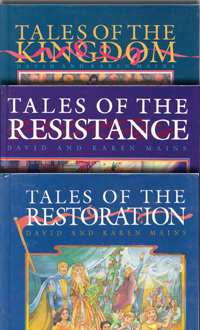
There’s not a single church that is conflict-free. If you find one, don’t join it because it won’t stay that way long.
The Bible records all kinds of conflicts that the early church faced:
* Acts 6 is the conflict over a certain group of widows that were neglected while another group was being cared for.
* Acts 15 is a theological conflict over what to make the Gentile believers observe of Moses’ law
* Paul and Barnabas were in conflict over whether to take John Mark on their second missionary journey, causing them to split up their great ministry team.
The people of God have always struggled to get along with each other. During Jesus’ ministry on the earth, His disciples argued about who would be the greatest in the kingdom. And if you go back to the OT you find as much conflict among the people of God as in the NT.
James 4:1,7-10
1 What causes fights and quarrels among you? Don’t they come from your desires that battle within you?
7 Submit yourselves, then, to God. Resist the devil, and he will flee from you. 8 Come near to God and he will come near to you. Wash your hands, you sinners, and purify your hearts, you double-minded. 9 Grieve, mourn and wail. Change your laughter to mourning and your joy to gloom. 10 Humble yourselves before the Lord, and he will lift you up.
James is writing to Christians. He does not ask or guess if conflicts are occurring, he knows it is happening. James offers four solutions for creating a culture of peace in the local church.
Creating a culture of peace requires you to:
>Take God seriously (vs 7)
>Take satan seriously (vs 7)
>Take sin seriously (vs 8)
>Take prayer seriously (vs 10)
If each of us lives these four solutions in our churches, we will create a culture of peace in our local churches.








 RSS Feed
RSS Feed
